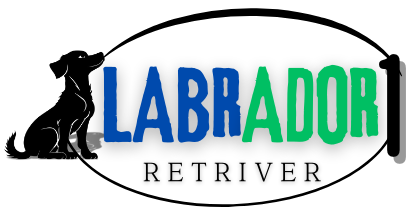Corgi Lab Mix: What to Expect from This Playful Hybrid Dog
Have you ever envisioned owning a dog that combines the loving disposition of a Corgi with the playful energy of a Labrador Retriever? The best qualities of both breeds are combined in the Corgi Lab Mix, a hybrid dog. The first step in bringing this adorable companion into your home is knowing what to expect from a Corgi Lab Mix, regardless of whether you are looking for a new family member or you are just interested in this unusual mix.
Labs, with their endless energy and amiable dispositions, and Corgis, with their short legs and large hearts, combine to form a hybrid that is frequently characterized as a delightful blend of loyalty and fun. However, it is crucial to understand exactly what you are getting into before rushing to adopt a dog. After all, a pet is for life, and knowing your dog’s needs, behavior, and care needs can make all the difference.
Therefore, continue reading if you are considering adopting a Corgi Lab Mix. Everything you need to know will be covered in this article, including the breed’s health issues as well as its physical characteristics and temperament. Await the arrival of your new best friend!
Table of Contents
What is a Corgi Lab Mix?
A crossbreed that combines the beloved traits of the Labrador Retriever and the Corgi is called a Corgi Lab Mix. Their hybrid offspring are very sought-after as family pets because both of these parent breeds are beloved for their intelligence, loyalty, and loving nature. However, the way the unique characteristics of both breeds are combined to create a single endearing dog is what really sets the Corgi Lab Mix apart.
The Parent Breeds
- Labrador Retriever: Known for their loving nature, high intelligence, and amiable disposition, Labs are one of the most well-liked dog breeds in the world. Their placid disposition and willingness to please make them popular choices for family pets or service dogs.
- Corgi: Small, nimble dogs with a big personality, Corgis were first bred for herding. Corgis are renowned for their energy and endurance despite their diminutive size. Because of their high level of intelligence, they are easy to train but also prone to mischief if not sufficiently stimulated.
The Corgi Lab Mix Traits
When these two breeds are mixed, you get a dog that has the best of both worlds. The Corgi Lab Mix typically inherits the Labrador’s social and easy-going nature, along with the Corgi’s drive and determination. This makes them highly adaptable, intelligent, and affectionate companions who are sure to brighten your home.
Physical Characteristics of the Corgi Lab Mix

Size and Weight
The size of a Corgi Lab Mix can vary, but it’s typically a medium-sized dog that strikes a perfect balance between the two parents. While Corgis are small, and Labs are large, the mix generally ends up somewhere in between.
- Height: On average, a Corgi Lab Mix will stand between 13 to 20 inches at the shoulder, which is a comfortable height for most homes.
- Weight: Their weight will usually range from 30 to 55 pounds, depending on which traits they inherit more from their parents.
Table: Size and Weight Comparison
| Breed | Height (inches) | Weight (pounds) |
|---|---|---|
| Corgi | 10-12 | 25-30 |
| Labrador | 21-24 | 55-80 |
| Corgi Lab Mix | 13-20 | 30-55 |
Coat and Colors
One of the most striking features of the Corgi Lab Mix is its coat. The Labrador’s sleek, short coat combines with the Corgi’s slightly longer, thicker fur to give the mix a double-layered coat that’s both soft and water-resistant. Coat colors can vary, but common colors include:
- Black and Tan (a mix of Corgi’s traditional coat)
- Yellow
- Chocolate (from the Lab’s genetic pool)
- Brindle and Merle (sometimes seen in the mix)
While the Corgi Lab Mix is a relatively low-maintenance breed, regular brushing will help manage shedding, especially during the shedding seasons.
Distinctive Features
- Ears: The Corgi’s pointed ears are often passed down to the Corgi Lab Mix, although some may have the slightly floppier ears of the Labrador.
- Tail: You’ll likely see a shorter tail, but some mixes may inherit the longer tail of the Labrador.
- Body Shape: The Corgi Lab Mix typically inherits the Corgi’s compact, muscular build and the Lab’s athletic frame, resulting in a dog that’s both sturdy and agile.
Personality and Temperament
When it comes to temperament, the Corgi Lab Mix is one of the most lovable and social hybrid dogs you can find. Their personalities are typically a blend of the friendly, outgoing nature of the Labrador and the affectionate, yet independent demeanor of the Corgi.
Friendly and Playful Nature
Corgi Lab Mixes are known for their friendly, social nature. They tend to get along well with everyone they meet, including children, other pets, and strangers. Their playful and energetic personalities make them great companions for active families, as they love to engage in outdoor activities like running, hiking, or playing fetch.
Training and Intelligence
Thanks to the Corgi’s sharp intelligence and the Labrador’s eagerness to please, the Corgi Lab Mix is a highly trainable dog. They learn commands quickly and enjoy participating in obedience training, as long as it’s kept fun and engaging.
- Training Tip: Keep training sessions short and rewarding. This will help maintain their interest and prevent them from getting bored.
Affectionate and Loyal
Both parent breeds are known for their loyalty, and the Corgi Lab Mix is no exception. This breed tends to form strong bonds with their families and enjoys spending quality time with you. Whether it’s cuddling on the couch or joining you on a walk, expect your Corgi Lab Mix to be by your side every step of the way.
Exercise Needs and Energy Levels
One of the most important things to know about a Corgi Lab Mix is that they are a high-energy breed. They need regular exercise to stay healthy and happy. If you’re an active individual or family, this breed will fit right in.
Daily Exercise Requirements
Your Corgi Lab Mix will thrive with at least 1 to 2 hours of exercise per day. This can include:
- Walks: Daily walks will help burn off some of their energy while allowing them to explore the world around them.
- Playtime: Interactive games like fetch or tug-of-war will keep them entertained and mentally stimulated.
- Hiking and Running: If you’re an outdoors enthusiast, your Corgi Lab Mix will love accompanying you on longer hikes or runs.
Mental Stimulation
Because they’re so intelligent, Corgi Lab Mixes also need mental stimulation to stay sharp. Puzzle toys, treat-dispensing toys, and training sessions are great ways to keep their minds engaged. Otherwise, they may start exhibiting undesirable behaviors due to boredom.
Health Considerations for the Corgi Lab Mix

Like any dog, the Corgi Lab Mix can face certain health challenges. Knowing what to watch out for and how to manage these issues is essential for ensuring your dog’s long-term well-being.
Common Health Issues
- Hip Dysplasia: Inherited from the Labrador, hip dysplasia is a condition where the hip joint doesn’t develop properly, causing discomfort and mobility issues.
- Intervertebral Disc Disease (IVDD): This condition, which can affect the Corgi due to their long spine, involves the degeneration of spinal discs and can result in pain or loss of movement.
- Obesity: Labs are prone to obesity, and because Corgi Lab Mixes share this trait, it’s important to monitor their diet and ensure they get plenty of exercise.
Preventative Care
A Corgi Lab Mix’s lifespan normally spans 12 to 14 years. Frequent veterinary checkups are essential for the early identification of health issues and for ensuring your dog lives a long, healthy life. Regular checkups, flea and tick prevention, and vaccinations will help keep your dog healthy.
Diet and Nutrition
A balanced diet is necessary for Corgi Lab Mixes to maintain their general health and energy levels. A high-quality dog food that contains enough protein and other vital nutrients is essential.
- Protein: Look for foods with chicken, beef, or fish as the primary protein source.
- Portion Control: Be careful not to overfeed your dog because both Labs and Corgis are susceptible to weight gain. Do not overindulge in treats and measure their food.
Table: Healthy Dog Food Options for Corgi Lab Mix
| Brand | Protein Source | Benefits |
|---|---|---|
| Blue Buffalo | Chicken | Supports muscle growth |
| Hill’s Science Diet | Lamb | Promotes joint health |
| Royal Canin | Salmon | Boosts skin and coat health |
| Nutro | Turkey | Digestive health support |
Grooming and Maintenance
Despite having a double-layered coat, the Corgi Lab Mix is comparatively easy to groom. Their fur will remain glossy and silky with regular brushing, particularly during shedding seasons.
- Brushing: Aim to brush their coat 2 to 3 times a week to manage shedding and prevent matting.
- Nail Care: To avoid overgrowth, nails must be regularly trimmed.
- To avoid infections, make sure their teeth are brushed on a regular basis and their ears are kept clean.
Corgi Lab Mix in a Multi-Pet Household

In general, a Corgi Lab Mix is a good fit if you have other pets. They are compatible with other dogs due to their social nature, and they typically get along well with cats as well.
Socialization and Play Behavior
Positive relationships between your Corgi Lab Mix and other pets can be fostered by proper socialization from a young age. Given their playful nature and love of company, it is critical to give them chances to engage with other animals.
Conclusion: Is the Corgi Lab Mix Right for You?
A lively, loving, and playful breed, the Corgi Lab Mix is a great addition to any family, single person, or active individual’s life. They are eager to please and easy to train because of their gregarious disposition and keen intelligence. To live a happy and healthy life, they do need a lot of exercise and care, though.
Think about whether you can provide for the energy levels and care requirements of a Corgi Lab Mix before bringing them into your house. This breed might be the ideal addition to your family if you are prepared for a devoted, affectionate friend who will keep you busy and amused.







